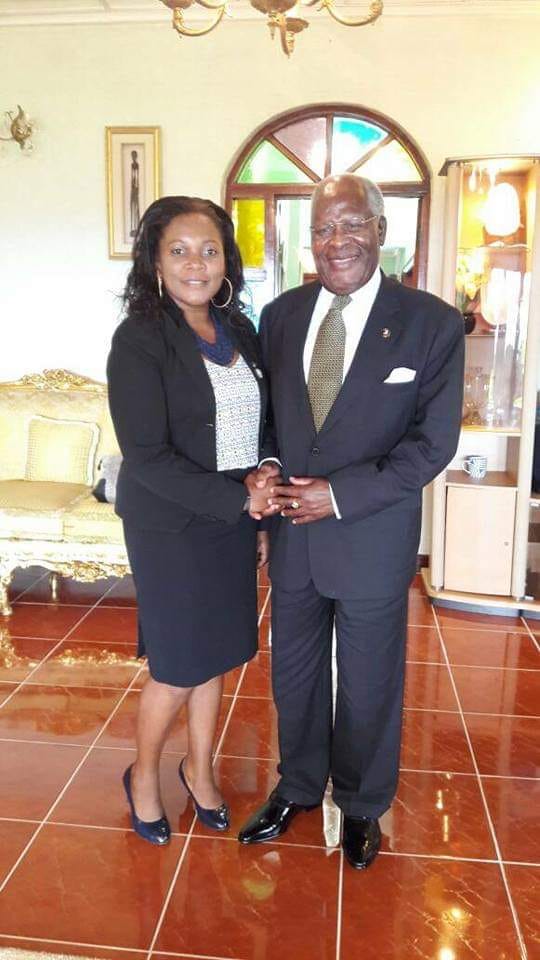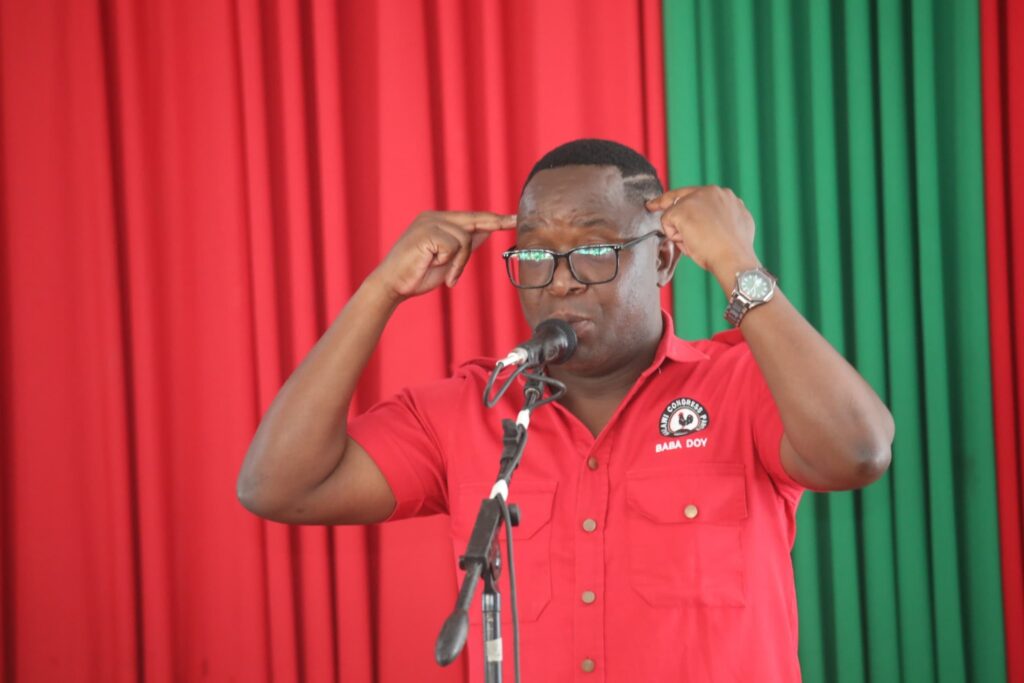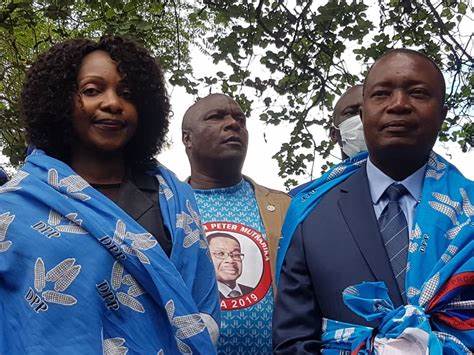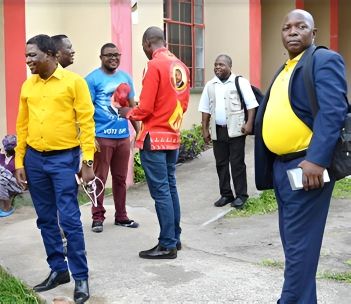This is a reality check. Dr. Dalitso Kabambe has been humbled by the maths of the September elections and now admits: No one can beat MCP alone.
Dr. Kabambe had declared that even if there were to be an opposition alliance, he would not settle for being anyone’s running mate. The party dismissed such opposition coalitions as distractions and insisted its leader would never be number two.
However, in a desperate last minute pivot, the UTM has now declared that it is ready to go into an alliance even with no stake or being a running mate.

A Facebook post by UTM Central Region Vice President Hellen Zalira Chabunya, has shaken the foundation of the party’s solo resolve. Chabunya acknowledges the political reality that an opposition alliance, however unequal, may be the only route to salvaging at least something from the September elections even if it means not reaching an outright 50%+1 threshold for victory.
She concedes that UTM’s influence within such an alliance may be minimal, but insists the mission is bigger than positions. To get into government at all cost.
With just a few months to go before the September 2025 elections, the political climate has become increasingly fluid. However, softening of the UTM’s hardline stance on contesting the polls alone is the most striking. This means the party’s bold declaration has finally hit a wall and this public admission marks a significant shift in UTM’s messaging.
Until recently, Kabambe and other senior party officials maintained that UTM would not align itself with any opposition entity, particularly the Democratic Progressive Party (DPP), unless Kabambe was the presidential candidate.
Chabunya’s comments now suggest a pragmatic pivot, acknowledging how weak the opposition is against the MCP. She also talks of the danger of fragmented opposition votes across regions; DPP in the South where the party is jostling for votes with the Peoples Development Party (PDP), UDF in the East, and AFORD in the North.
So far the MCP has made inroads in all these regions adding to its already advantage through the central region which has proved a no-go zone for all the parties.
Chabunya’s Facebook thread reflects deeper anxieties within opposition ranks about the mathematical impossibility of any single party challenging the MCP alone.
She states: “Fragment votes in the south (DPP), in the east (UDF), and AFORD in the north. YES, as Opposition we need Alliance.”
This frank analysis is a notable contradiction of UTM’s earlier stand and casts doubt on Kabambe’s hardline posture, particularly his demand to appear on the ballot as the presidential candidate under all circumstances.
When asked by one Facebook user whether this is the position of the UTM, Chabunya could not be drawn to explain further. If this is not the position of the whole UTM, then the inconsistencies in positions from the top leadership would raise questions about unity and coherence within the party.
Chabunya’s comments come just soon after the DPP made it clear that in case of any alliance the party is not ready to share positions with anyone. DPP spokesperson Shadric Namalomba recently posted on Facebook that the party will not cede the presidential or vice-presidential positions to any outsider.
His post alludes to the trauma of the 2012 power transition, when the death of Bingu wa Mutharika resulted in the DPP losing power to then Vice President Joyce Banda of the People’s Party. That experience, he says, remains a cautionary tale as the DPP was unceremoniously thrown out of government and found itself in the opposition.
This posture complicates Chabunya’s idealistic hope for unity, especially when the DPP views internal loyalty and control over executive power as paramount. It also calls into question the feasibility of any alliance structure that requires mutual concessions.
Chabunya, in her post was quick to dismiss the United Democratic Front (UDF)’s electoral value. Responding to concerns about leaving UDF and its leader Atupele Muluzi out of the alliance, she quipped: “Atupele and what votes?” She went on to argue that in 2019, Atupele only garnered around 200,000 votes, a figure she considers statistically insignificant.

While some, like MCP’s Steven K Malondera, reminded Chabunya that UDF remains one of the few parties with more than 11 MPs and a seat on Parliament’s business committee, Chabunya countered that voter patterns often differ between presidential and parliamentary elections. UTM has four MPs.
She pointed out that in previous elections, parties with little parliamentary representation performed well in presidential polls and vice versa.
The Facebook exchange reveals a sobering reality: the opposition may agree on the need to defeat the MCP but lacks consensus on how to get there. Each party sees its own strengths as central to the coalition, while dismissing the contributions of others.
For UTM, the dilemma lies in balancing political ego with national interest. While Chabunya might have her position, it remains to be seen whether her party leader will publicly embrace her line of thinking.
Kabambe’s previous statements have been categorical and any perceived compromise now may invite accusations of inconsistency or desperation. And might be contrary to the expectations of most UTM supporters.
For the DPP, their insistence on monopolizing executive positions could also backfire. Their fears of a repeat of 2012 are understandable, but they must also reckon with the realities of coalition politics. If UTM or other alliance partners are reduced to cheerleaders, internal sabotage, withdrawal and a frustrated support base could doom the pact.
Though Chabunya is dismissive of UDF, she thinks figures like former President Joyce Banda would be valuable to the opposition alliance even without the numerical advantage. She also hints at AFORD’s importance in the North, given its historical roots, but admitted that its vote bank has shrunk dramatically in recent elections.
Commentators have pointed out that Chabunya’s position is a recipe for disaster especially within the party.
“I am not sure whether she gave a good thought on her sentiments. It will only be a handful of UTM supporters who would be ready to go with such an arrangement whereby the UTM will again be in the shadows and this time even without a tangible stake like being a running mate,” said one commentator.
Another observer wondered as to what would motivate UTM supporters to vote in such an arrangement.
“Otherwise, this could sound a best chance for the opposition to get closer to gabbing power but it might unravel into yet another episode of political disaster, strengthening the way for an MCP victory by default,” he said.

In 2019, the UTM got only four MPs (2% of the National Assembly representation) a development that up to now challenges Kabambe on how he is going to close the gap on his own and hit the 50% + 1 vote at the national polls.
Observers have argued that the UTM candidate, who is seen as a novice in real-world politics, faces an impossible maths problem to surmount before he really means anything on the national political stage.
Most argue that in 2019, UTM was pegged so much on late Dr. Saulos Klaus Chilima who polled 21% of the national vote as a presidential candidate. Yet in that same elections, his UTM only managed 2% in the National Assembly meaning Malawians supported Chilima the person, not necessarily his party.
Now that Chilima is gone, the 21% is up for grabs, but not inherited. Kabambe has a task to elevate UTM from 2% to 21% just to retain the 2019 status quo and from there, he would still need to push toward the 50%+1 mark to win the presidency outright.
That’s a near impossible task for someone with no mass following, no track record of campaign charisma, and no clear political base.








